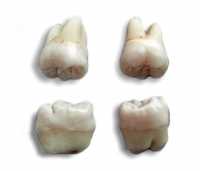Supplements, Vitamin C, Vitamin D, Vitamin E, Vitamin K / 04.12.2024
Tailoring a Multivitamin to Meet Different Needs
Be sure to discuss your specific use of vitamins and supplements with your health care provider. Vitamins and supplements may have side effects and/or interfere with other medications. Vitamins and supplements may also be toxic in higher doses.
Over-the-counter vitamins and supplements may not be FDA approved or contain inaccurate labeling information.
Every cell, every organ and every function in our bodies depends on nutrients. From supporting the immune system to keeping bones strong, stabilising energy levels and even enhancing mental clarity, vitamins and minerals are essential for us to function properly. But even with a balanced diet, ensuring we get all the nutrients we need can be a challenge. The rise of processed foods, long storage times and agricultural practices, leave gaps in what we eat.
The ideal multivitamin formula can vary significantly by gender and age, as different groups have unique nutritional needs. The best multivitamin for men will typically include ingredients that provide additional support for heart health and muscle function, such as supplements with higher levels of vitamin E and magnesium. Ingredients such as coenzyme Q10, which is known to support cardiovascular health, and lycopene, which benefits prostate health, are also found in some products.
Particularly important for women are nutrients such as folate and biotin that are important for reproductive health and for hair, skin and nails. The best multivitamin for women may also include iron, especially for those who may have higher needs due to menstruation.
For the elderly, the focus is on nutrients that compensate for the natural decline in absorption and physiological changes. For example, what is the best multivitamin for a 70-year-old woman? Probably one with higher levels of vitamin B12 and vitamin D. Formulas for older people are also often gentle on the stomach and designed for better absorption, making them suitable for sensitive digestive systems.
(more…)





















